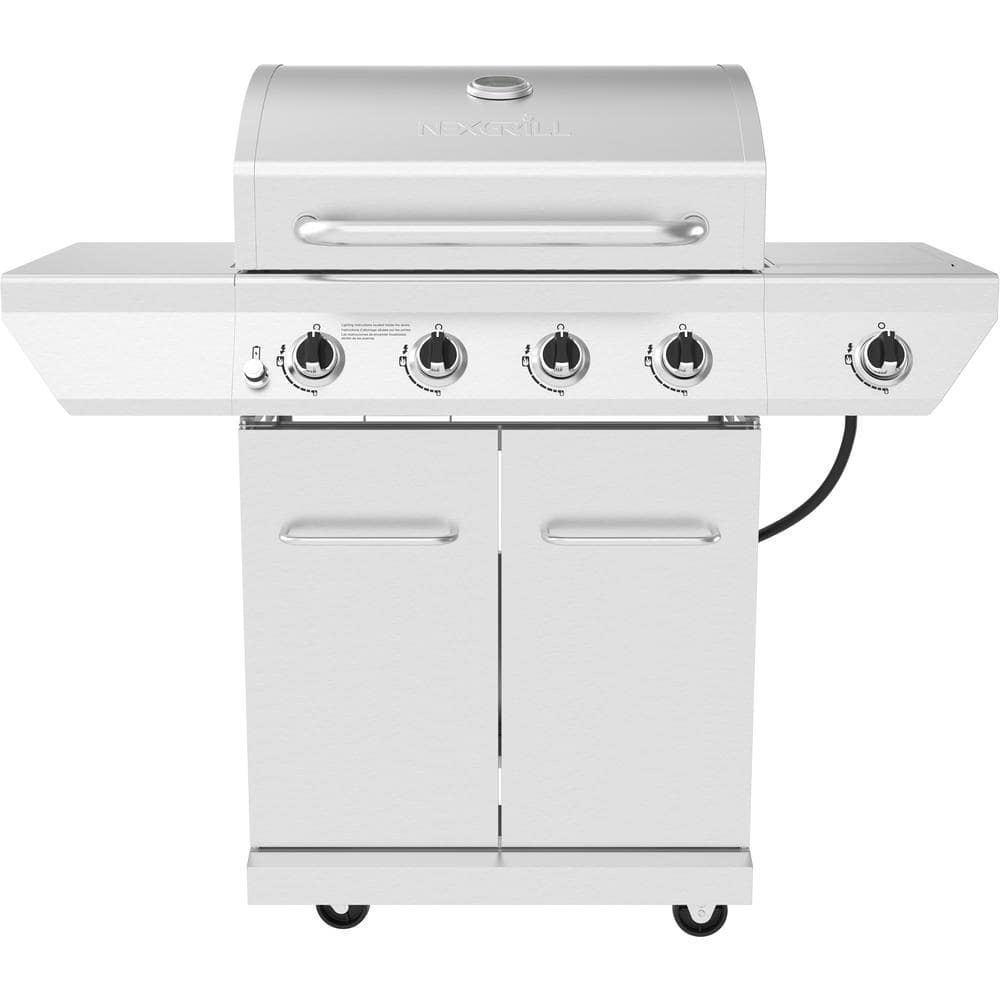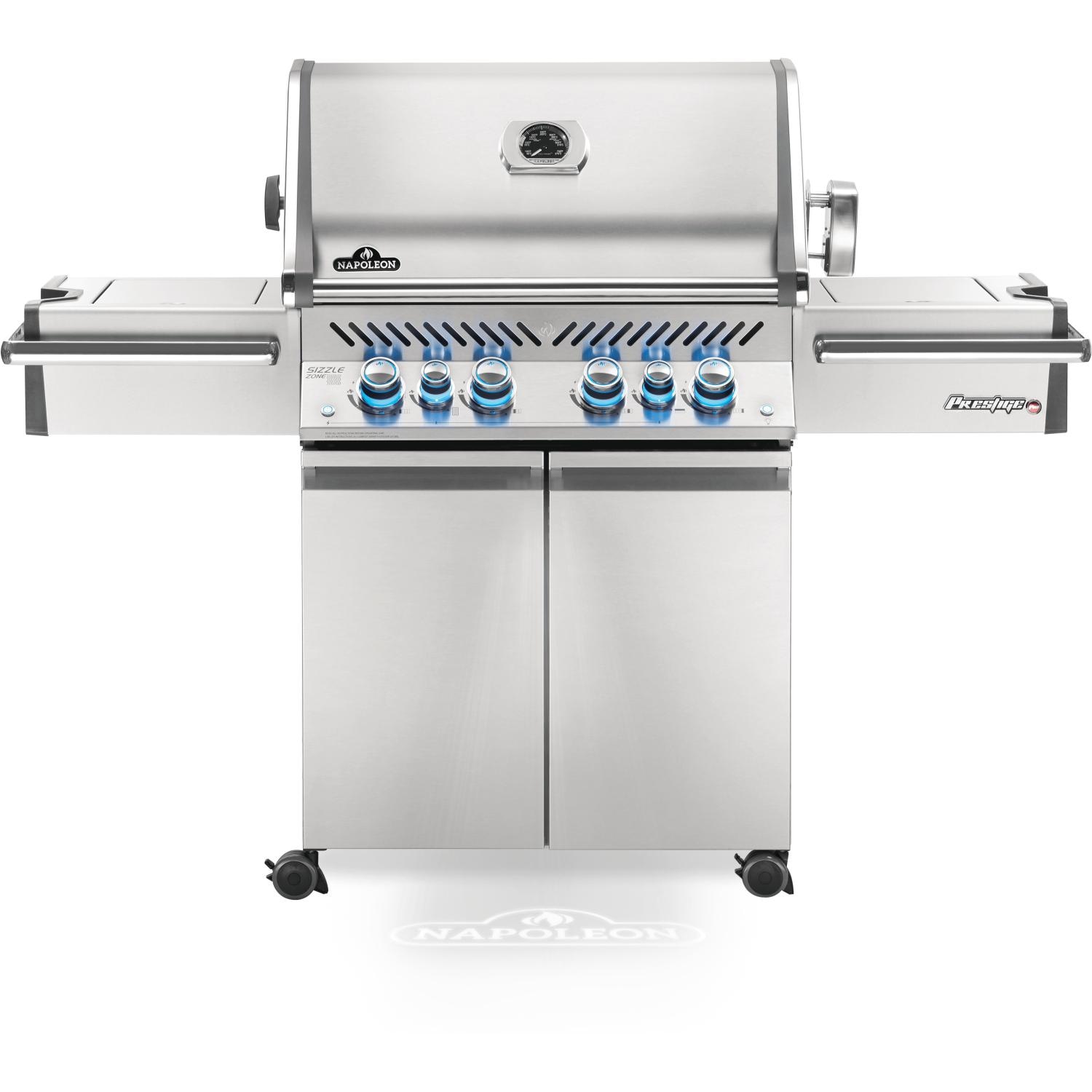Nexgrill 4-Burner Propane Gas Grill in Stainless Steel with Side Burner
4 Stainless Steel Burners covered by a 5 year warranty. Durable, easy-to-clean stainless steel cooking grates. 626 sq. inch cooking surface along with 12,000 BTU side burner.
This NEW Nexgrill 4-Burner Propane Gas Grill in Stainless Steel boasts 626 sq. in. of total cooking space. With 4 main burners and 1 side burner, supplying 60,000 BTUs of flame-roasting energy, this unit is sure to meet your grilling expectations. The even heat cooking system with stainless steel burners, angled flame tamers and stainless steel cooking grates work together to distribute consistent heat across the entire grilling surface while reducing flare-ups. An electric ignition allows it to fire up instantly and an upper-level warming rack provides a place to heat buns and keep foods toasty. Casters make it easily mobile and the built-in thermometer enables precise temperature regulation. Make your next grill a Nexgrill.
- 4 stainless steel burners for ideal heat control with 5-year burner warranty
- Stainless steel lid for improved strength and durability
- Durable stainless steel cooking grids
- Stainless steel side shelves offers a convenient prep area
- 12,000 BTU stainless steel side burner offers the ability to whip up quick side dishes
- 626 sq. in. of cooking surface
- Battery operated electronic igniter system
- Pvc cover 700-0888 sold separately
- Assembly required
Additional information
| Assembled Depth x Height x Width (in.) | 24.75 x 46 x 51 |
|---|---|
| Certifications and Listings | CSA Certified |
| Grate Warranty | 1 Year |
| Overall Grill Warranty | 1 Year |






by Peter
Fabulous quality, packaging, workmanship, easy to understand directions, good price and made in the USA. I couldn’t ask for more with this purchase!
by Doug
Performs beautifully. Took considerable time to assemble.
by Michael
I thought it was a really nice grill. The only problem was it can only be steered one way. That’s because only 2 of the wheels can go in any direction and the other 2 wheels can’t.
by Chris
Grill was pre-assembled. Very happy with purchase of this grill.
by James
The grill was assembled very nicely. All nuts a bolts were tight and the grill did not have any wobble. After connecting gas fuel grill have perfect even heat across all the burners. Looking forward to many successful grilling events.
by Terry
Very nice grill and operates as advertised. Easy-to-use and clean!
by Bill
It came assembled, hooked up gas tank and all 5 burners ignited as instructed.